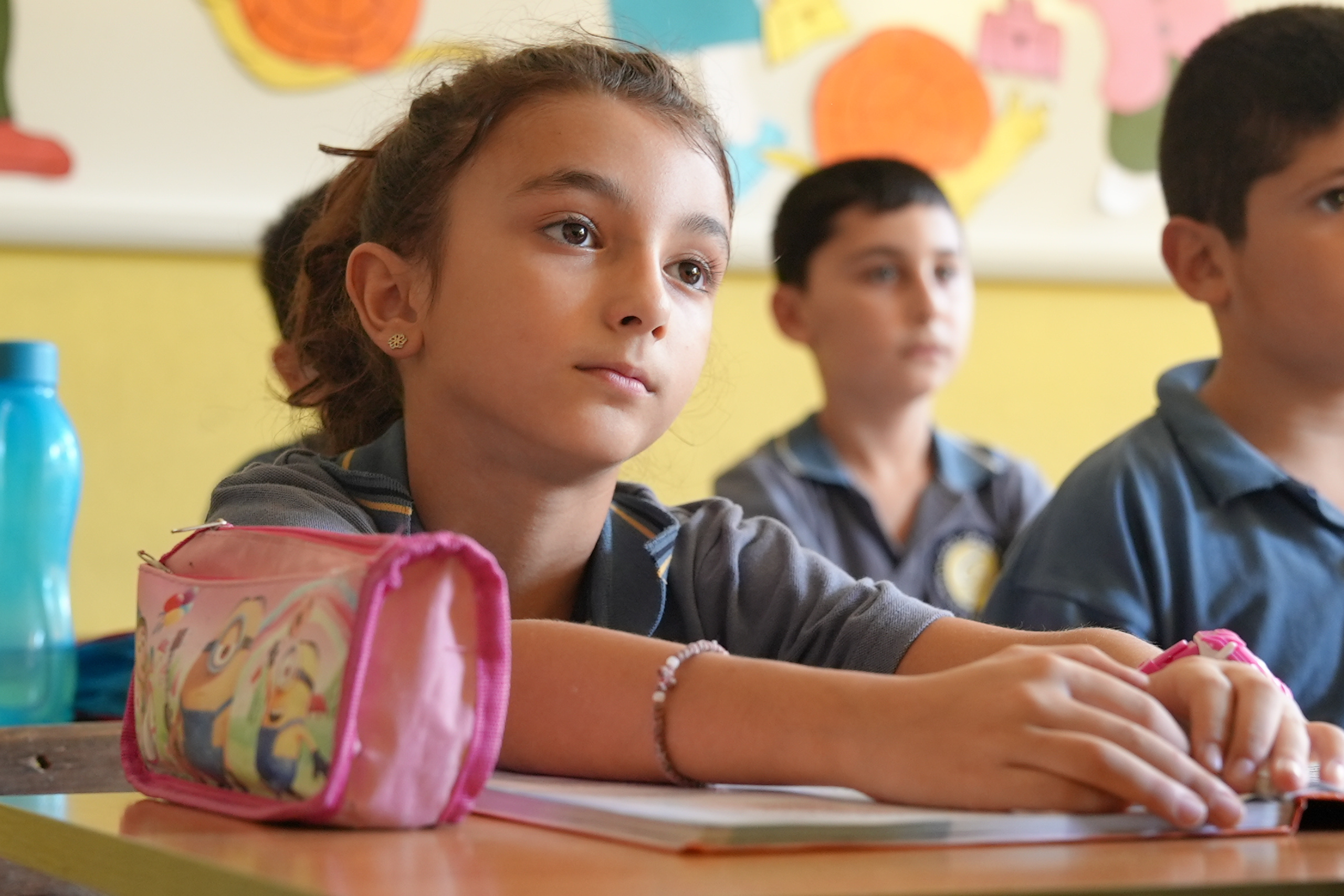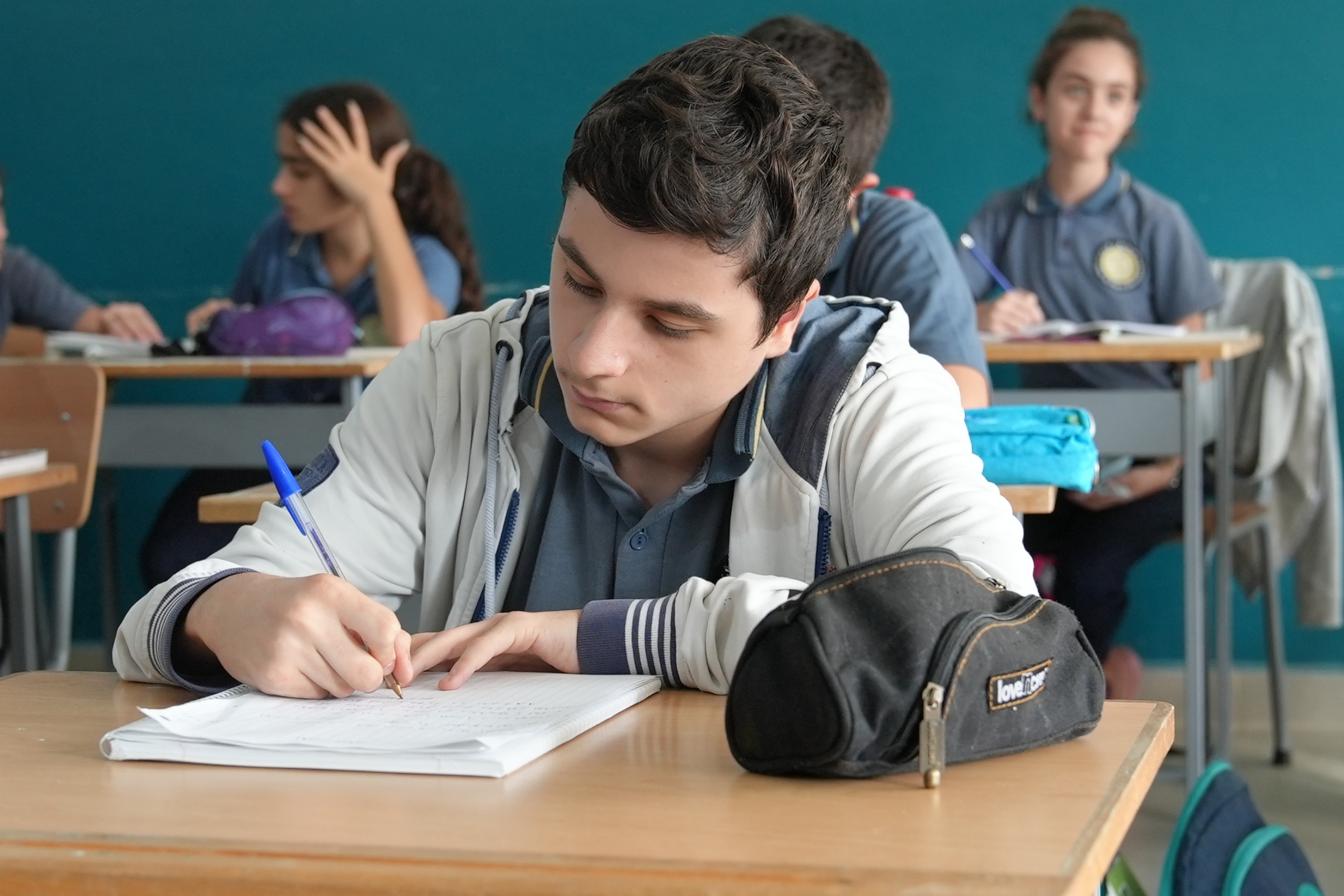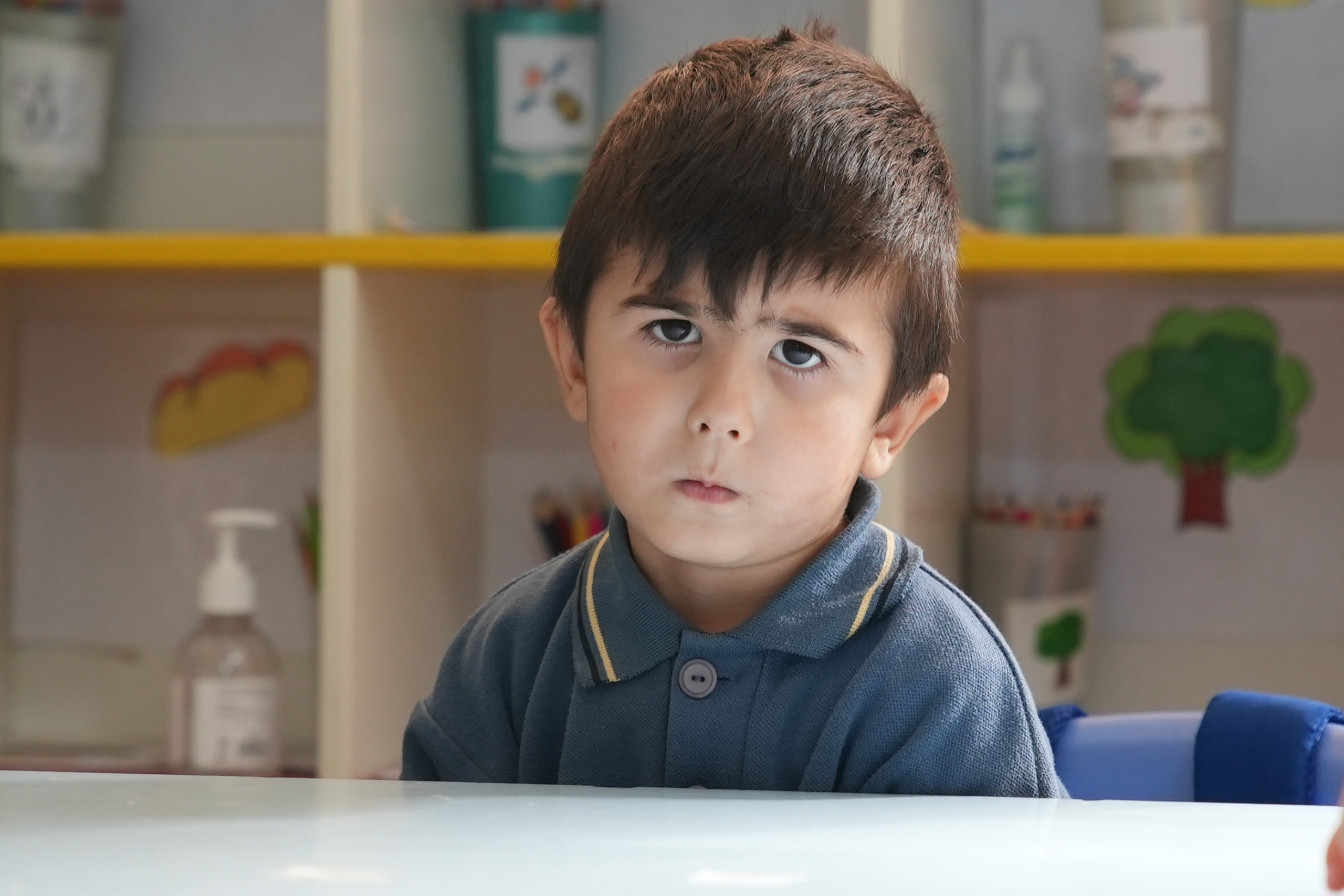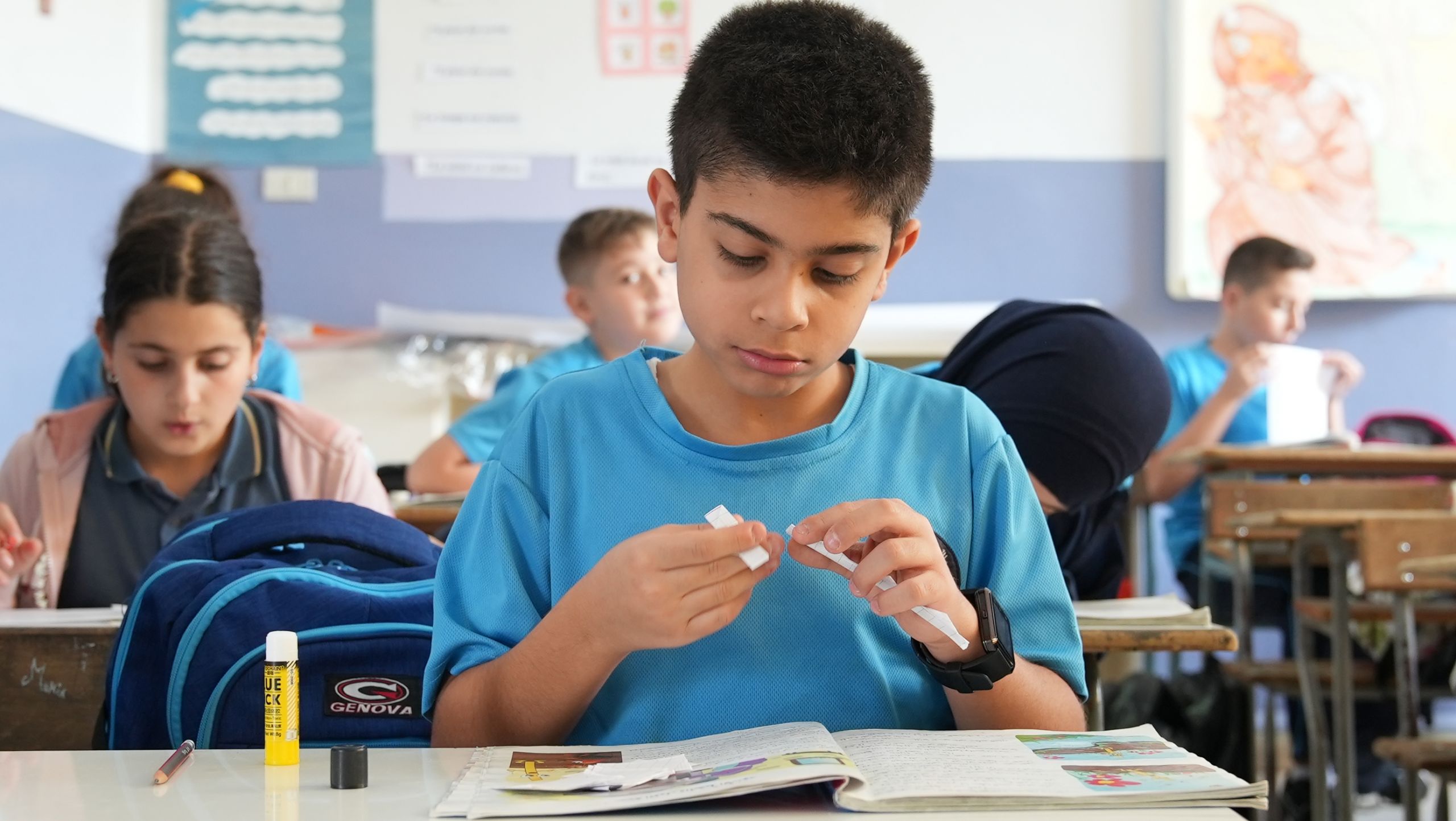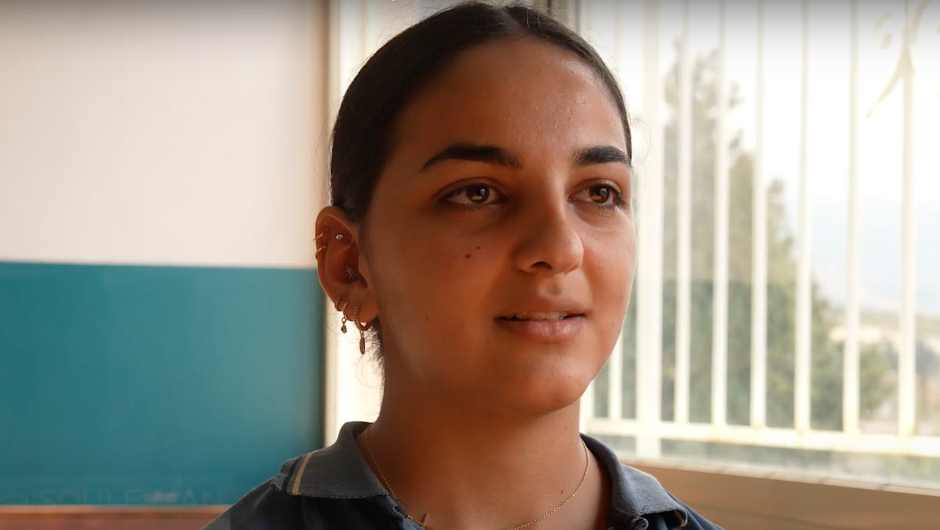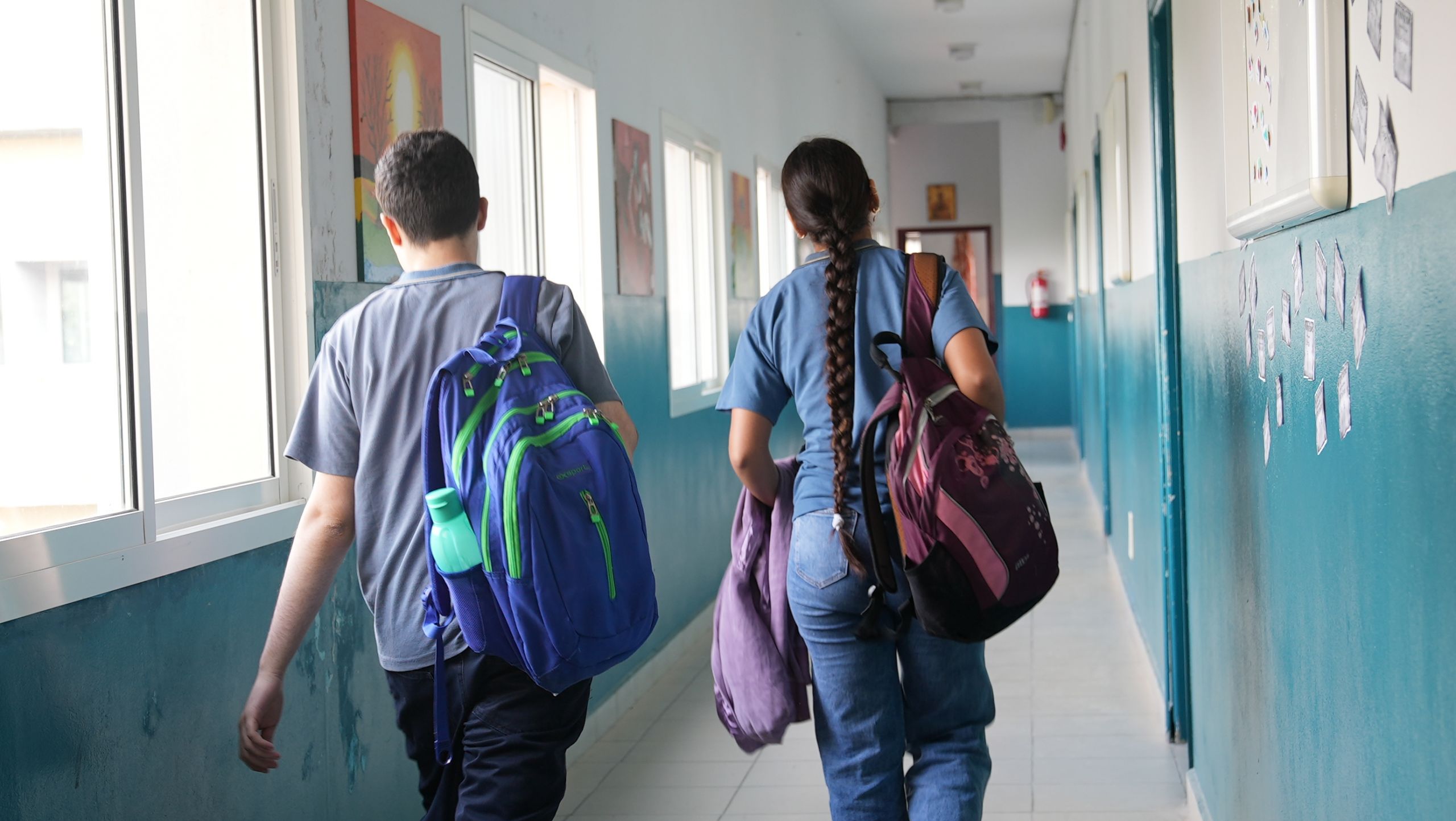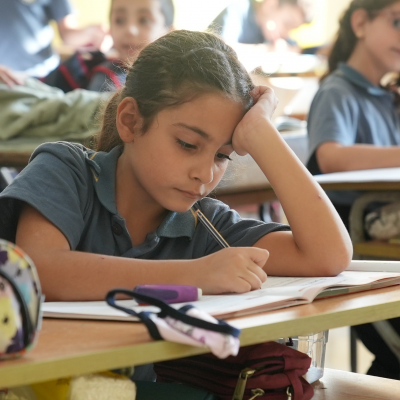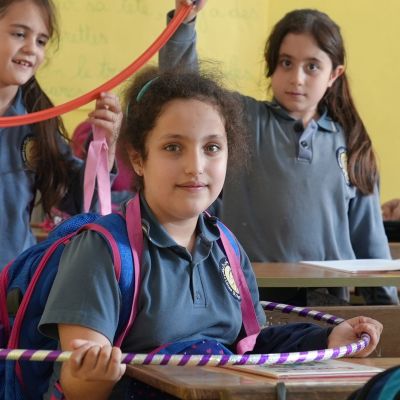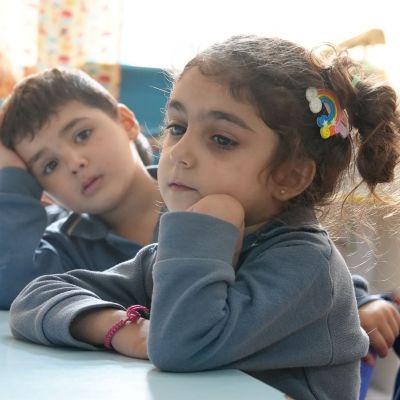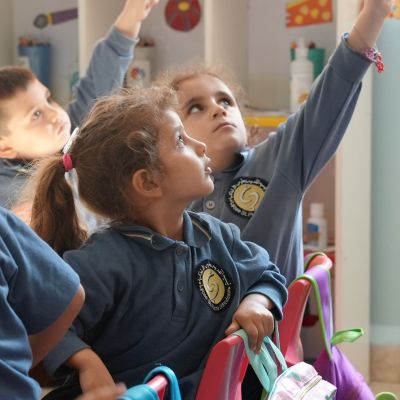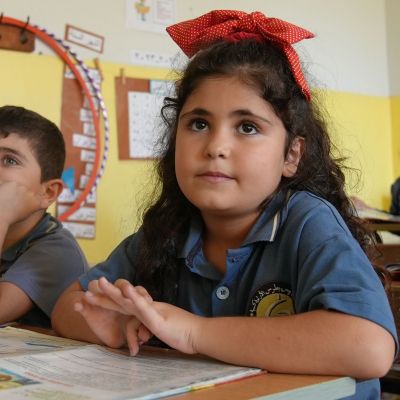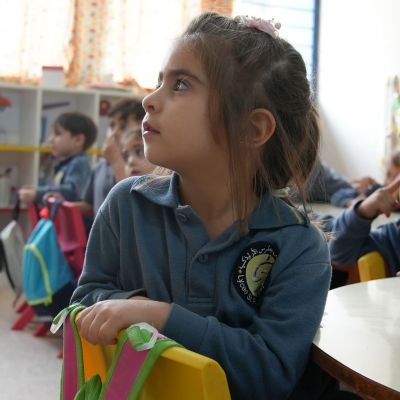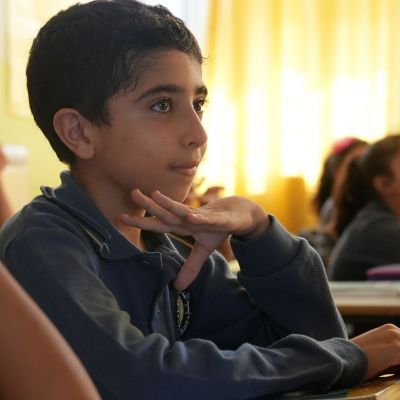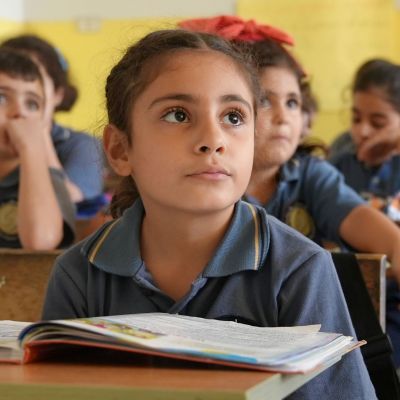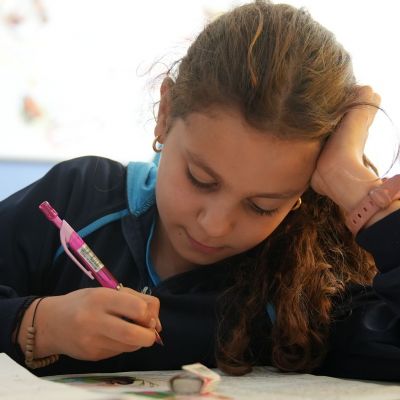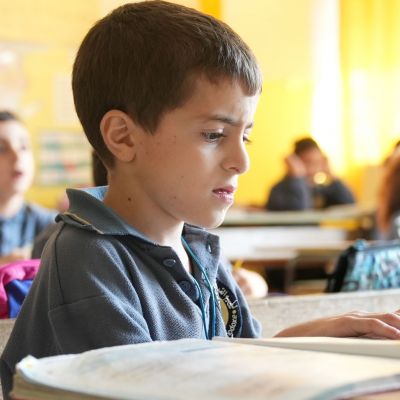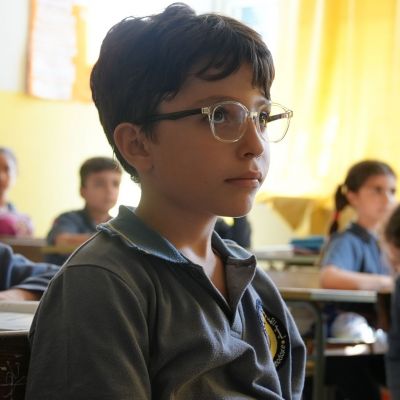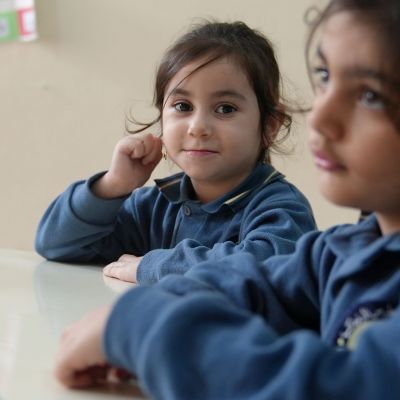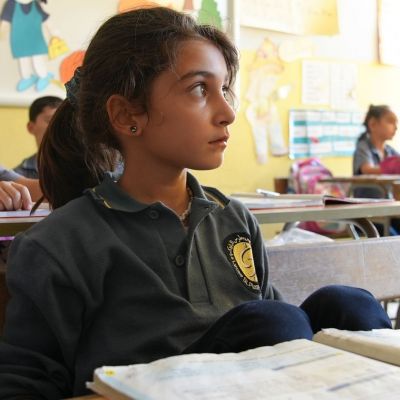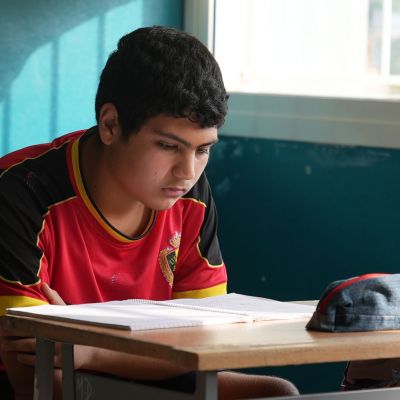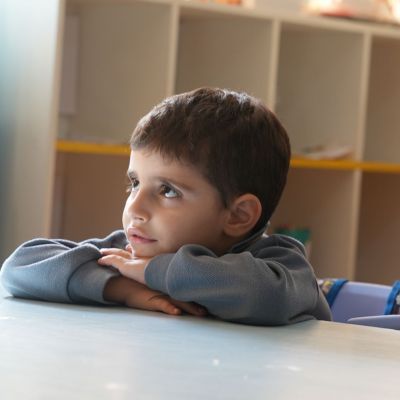Since late 2019, Lebanon’s currency has lost more than 95% of its value. An estimated four million households have fallen into poverty as a result of the nation’s economic collapse, the worst worldwide since the 1850s. The situation in Lebanon keeps on sinking with no sign of improvement in sight. The price of food, fuel and medicines, which are not constantly available, is increasing at an alarming rate. With the rapid devaluation of the currency, the minimum wage is no longer enough to fill up a city car, let alone feed a family.
With the crisis unfolding and all the unfortunate events adding up, including the Beirut port explosion and the Covid-19 outbreak, a large number of schools have been forced to discontinue their operations and even close for good. Schools were faced with an insolvent situation where they had to default on paying teachers’ salaries as parents were no longer able to pay school fees. Teachers started raising up and demonstrating as they protested against their salaries being reduced by 90% amid the economic crisis. Unemployment hit a peak and the entire country started heading towards an abyss.
Under such circumstances, children, who are making their way across very delicate stages of development, are not being appropriately supported. They live in extremely unfavorable conditions and are left with tremendous amounts of stress that negatively affect their development on so many levels. Parents are faced with a fait accompli: with limited ressources, they have to make crucial choices between food and education, electricity and medication, child labour and losing shelter… Quantity and quality of food intake is decreasing day after day leaving behind malnourished children. Even those who are privileged and can still afford to buy food worry about tomorrow. Many children have to drop out of school and work in order to help their parents who, by all means, aren’t able to provide for their families anymore. As if that wasn’t enough, a recent cholera outbreak is diminishing their chances of survival and is yet another blow to an already weakened country. This is a whole generation whose childhood is being wiped away by the harshness of the situation, not being able to eat, sleep, study or play untroubled. Lebanese children live in multidimensional insecurity: food, education, financial, healthcare, sanitation and shelter insecurity.
Lebanese children are left with too much uncertainty and insecurity about themselves, their families, their friends… The Lebanese Ministry of Education & High Education, together with the 126 partner organizations participating in the Lebanon Crisis Response Plan, estimate that, of the approximately 2 million 20 thousand school-age children in Lebanon, over 737 000 did not enroll for the year 2020-2021 (PowerBI). In parallel, child labour rates reached up to 45% in certain regions. Primary education is mandatory though under the Lebanese law and the United Nations Convention on the Rights of the Child.
Seeing parents’ distress in providing their children with one of the basic needs and rights due to financial insecurity, ALAM has collaborated with Mission Education (ME) on a project that aims in financially supporting parents and children in their quest for education and self-actualization. The MJS joint project aims to help vulnerable families who are unable to pay for their children’s schooling, but also support teachers by recovering their unpaid salaries and school-related expenses.
By joining efforts, ALAM and ME combined a remarkable sum of money that was used to support 609 students and 262 teachers in 8 Lebanese schools. The schools have been meticulously and thoughtfully selected based on the following criteria: non-profit private schools that are strategic for their region, far from regional centers, receiving little or no support at all and being inclusive. In collaboration with the schools’ administrations, the beneficiaries were carefully selected based on need. Priority was given to children at risk of quitting school because of their parents inability to afford school fees, especially those whose parents were divorced, widowed, disabled, unemployed or sick. Among the teachers, the priority beneficiaries were those at risk of abandoning the low-paying educational sector, short of providing for their families.
Among the schools that benefited from the MJS project was Lycée St Pierre, a private school in Amioun, Lebanon, which was in danger of closing due to the economic crisis: parents were unable to pay school fees and the school in turn became unable to pay teachers’ salaries, a sort of vicious circle in which many schools have been trapped. The Lycée St Pierre is home to a diversity of students from the entire region and its shutdown would have left countless children school deprived and numerous teachers jobless.
Following several interviews we conducted at the school, we were overwhelmed with emotions, a confusing mixture of joy and sadness.
Students, parents, teachers, school director and school personnel all expressed their endless gratitude to ALAM and ME for the help that was provided in a time of need.
“If it wasn’t for your financial support, so many of my friends would have left school this year because they could not afford tuition”, said Charbel, one of the students. “But I’m still extremely worried about my other friends that weren’t helped and whose parents' situation is worsening”, he went on.
Another student disclosed having to work after school to help her parents pay school fees. She also told us that many of her friends are in the same situation, admitting that it is very stressful as they barely have time to do their homework and are sometimes forced to try and study while they’re on work shifts. Constantly juggling between school and work, these students worry about things only adults would normally stress about. Not only does this situation automatically affect their performance at school but it also negatively downgrades their educational trajectory and threatens their integration into society.
Many of the students interviewed expressed how anxious and sad they get when hearing everybody around them constantly discussing the harsh and ever declining situation. We could clearly read the distress on their faces, especially when mentioning their parents’ day to day financial struggle.
When asked what worries them the most, many children expressed their fear of dropping school next year due to financial difficulties.
Undoubtedly, living under such circumstances affects the overall well-being of children. In fact, the tremendous levels of anxiety that they are experiencing can have a very harmful effect on their health in the long run, making them prone to developing depression and other mental disorders.
One of the teachers who also happens to be a mom, mentioned how ALAM and ME’s financial support kept them in school: “During COVID-19 outbreak, we had to resort to online teaching for 4 consecutive months, and because of the financial crisis, the school had to cut our salaries in half and wasn’t able to pay back the other half for a whole year. Our financial situation was very hard, as was the case for parents and everybody around us. If it was not for ALAM and ME organizations that covered wages owed, we would have left school by now”, she said.
A school official, whose children are in college, expressed his immense gratitude to ALAM and ME for covering the due salaries. However, he mentioned that his salary is barely enough to cover his family’s food expenses and conveyed his worries about ensuring his children’s college tuition.
Another mom expressed her relief for the assistance she received for her child’s school fees and deeply wished all other children in need would be helped the same way.
One of the mothers interviewed explained how she and her husband can barely cover their family’s food expenses. Her husband is a public sector retiree and his pension benefits, equivalent to 30 USD per month, can barely cover her transport expenses between home and work. Their daughter works after school as well to help them financially; still, they struggle every single day to ensure food.
It is useful to recall here that financial and economic meltdown has led banks to freeze literally all bank accounts in the country. Even people who used to be well off are now experiencing financial paucity.
Despite continuous efforts to support the educational sector and alleviate the debts of these institutions and individuals, a huge number of families throughout Lebanon still need financial, educational and psychosocial support. ALAM has been working relentlessly to ameliorate the lives of Lebanese children and has achieved many milestones to date, providing school fees for over 44 000 children, food assistance for over 1 500 families, milk for more than 80 000 infants, solar panels and power banks for 3 schools, funding for a suicide hotline, support for the promotion of art therapy, treatment for paediatric cancer patients and medical equipment for many hospitals in Lebanon.
ALAM will keep working hard for the children and their families and, as Nelson Mandela once said: “It is not beyond our power to create a world in which all children have access to a good education”. We will do everything in our power to achieve that and much more. Every child deserves access to food, water, education, healthcare, safety, stability and unconditional love.
In this context of incipient worldwide recession, the urgency of already weakened countries becomes even more pressing. Lebanon is a nation on the verge of collapse and must not be forgotten in the shadow of the economic decline of the great countries, for we only have each other in this World.
Help Lebanese children feel secure and hopeful again; help them get sufficient food, clean water, a proper education, decent healthcare, stability and peace of mind, all while being surrounded by their loved ones in their beloved country.


